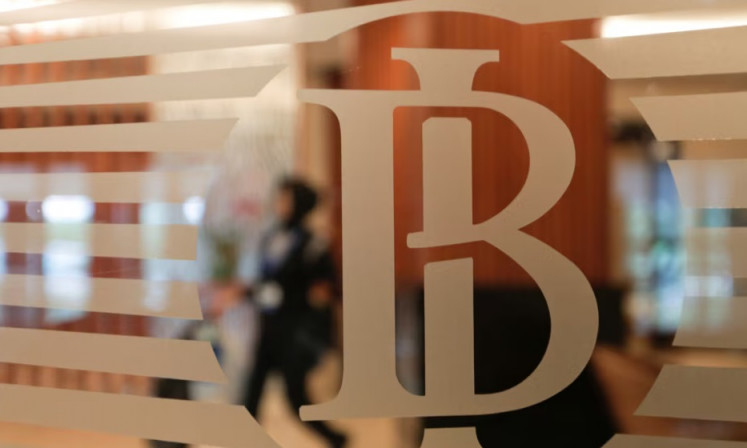Popular Reads
Top Results
Can't find what you're looking for?
View all search resultsPopular Reads
Top Results
Can't find what you're looking for?
View all search resultsInsight: Desperately seeking global cooperation, leadership to beat COVID-19
The preferred policy response of every country threatened by COVID-19 seems to be severely restricting movement (of people, goods and services) into and out of cities or countries
Change text size
Gift Premium Articles
to Anyone
T
he preferred policy response of every country threatened by COVID-19 seems to be severely restricting movement (of people, goods and services) into and out of cities or countries. For now, this is the best way to slow down the spread of the novel coronavirus within and between nations.
But beating COVID-19 will require much more than lockdowns, social distancing and travel bans. Even if China, South Korea and Japan succeed in scaling back the virus, much of the rest of the world still catches it.
Indeed, the World Health Organization has expressed serious concern over the “alarming level of inaction” in many countries. To survive this crisis, the world community will need a heavy dose of international cooperation and leadership.
Yet instead of intense international cooperation, it’s seems to be “every nation for itself”. The COVID-19 threat is still so new. Terrified by the potential human and economic consequences, affected countries tend to be directing most of their energy inward.
Cooperation has occasionally been hampered by strategic rivalry, particularly between the United States and China, meaning suspicion and zero-sum thinking continue to guide policy perspectives.
You would expect the pandemic threat is so great that strategic rivals would be persuaded to temporarily shelve their competition; however, this does not seem to be the case. Worse, in some countries COVID-19 is also feeding narrow-minded nationalism, conspiracy theories, xenophobia and even Sinophobia.
The most important area for international cooperation – a definitive game changer – would be efforts to find a vaccine for the virus.
The challenge here is how to foster the right kind of international cooperation where scientists and researchers from around the world could work together freely and effectively to develop a vaccine, free from political interference and mistrust. If found, the common educated guess for the time needed to get a vaccine ready for distribution is 12 to 18 months.
If the pandemic remains acute by then, countries would be in intense competition to access those vaccines, potentially raising new disputes. Who would decide which countries get them first? What would be the basis of those decisions? Who would set the price?
A fair international arrangement must ensure all the affected countries are looked after, with the WHO at the center of this process.
International cooperation would be incomplete without leadership.
Global challenges have become more manageable when a country or a small group of countries decide to be at the forefront of a crisis – taking the lead, pressuring and persuading others, spending resources, pushing boundaries.
For COVID-19, along with a lack of international cooperation, we are still not seeing any strong global leadership.
The US, with all her diplomatic, economic and scientific resources, is typically suited to take up this leadership role. But President Donald Trump shows no interest in playing this role. Ahead of an intense election year, Trump would rather amplify his “America First” mantra – not “save the world”.
Trump’s biggest challenge is that the US may well become the next epicenter of COVID-19. He will focus on impressing his local base, not global citizens.
The next obvious leader candidate is Europe. But presently Europe lacks a coherent plan for herself, let alone for the world. European countries are busy enforcing export bans of medical supplies to plug shortages at home. European countries seem to have different responses to COVID-19; and critics say Europe has shown little solidarity with its own member – Italy.
Currently the country that comes closest to exercising international leadership is China. Despite initial mistakes, China has earned the rare twin credentials not just as the country with one of the world’s highest COVID-19 cases (around 80,000) but also for effectively getting the pandemic under control. Wuhan, where it all started, is no longer under lockdown.
China, more than any other country, has the experience, resources and will to come to the aid of others affected by COVID-19.
China has proactively joined a special ASEAN-China foreign ministers meeting in Laos, held video calls with 17 Central and Eastern European countries and is helping Indonesia with information, advice and equipment.
Undoubtedly, China wants to prove a long-standing point, that China is a (more) reliable partner, especially in times of crisis.
Somehow, this has irked the US political establishment. Nonetheless, the US should welcome China’s goodwill COVID-19 diplomacy. Jeering China for helping other countries at this desperate hour would only make the US look selfish and petty in the eyes of the world community.
Indeed, this pandemic has become a test for global solidarity.
The recent Group of 20 special summit on COVID-19, held through video call, was a good place to start, especially the planned injection of some US$5 trillion of economic stimulus globally. Unfortunately, however, tension and mistrust, especially between the US and China, remain.
We may be about to face the perfect storm: Humanitarian disaster, global recession, severe deglobalization, crash of healthcare systems, social breakdown and conflicting nationalism. No country can insulate themselves from what is to come.
COVID-19 should be the exception to – not the extension of – geopolitical rivalry; an opportunity to recover trust rather than advance mistrust.
In these extraordinary times, citizens of the world count on world leaders to bring out their statesmanship and have the courage and imagination to think and work together to fight this pandemic in equally extraordinary ways.
This is a war we should all win.
______
Founder of the Foreign Policy Community of Indonesia (FPCI) and former Indonesian ambassador to the United States. The original version was published on thejakartapost.com.










